Food Trends and Chefs’ Insights from PoB Hotels
22 April 2022
From West Sussex to the Scottish Highlands, PoB Hotels’ Head Chefs have the inside scoop on the latest food trends sweeping the UK
The expertly-curated collection of the very finest privately-owned hotels across the British Isles, many with their own kitchen gardens, offers an array of dining experiences to tickle the taste buds, from Michelin-starred tasting menus to relaxed dining in sweetly scented flower gardens.
Emerging themes include Climatarian and plant-based diets, plus the finest and freshest ingredients. Brimming with foodie news from kitchens up and down the country, here are the food trends, insights and latest must-use ingredients from these very talented hotel chefs:
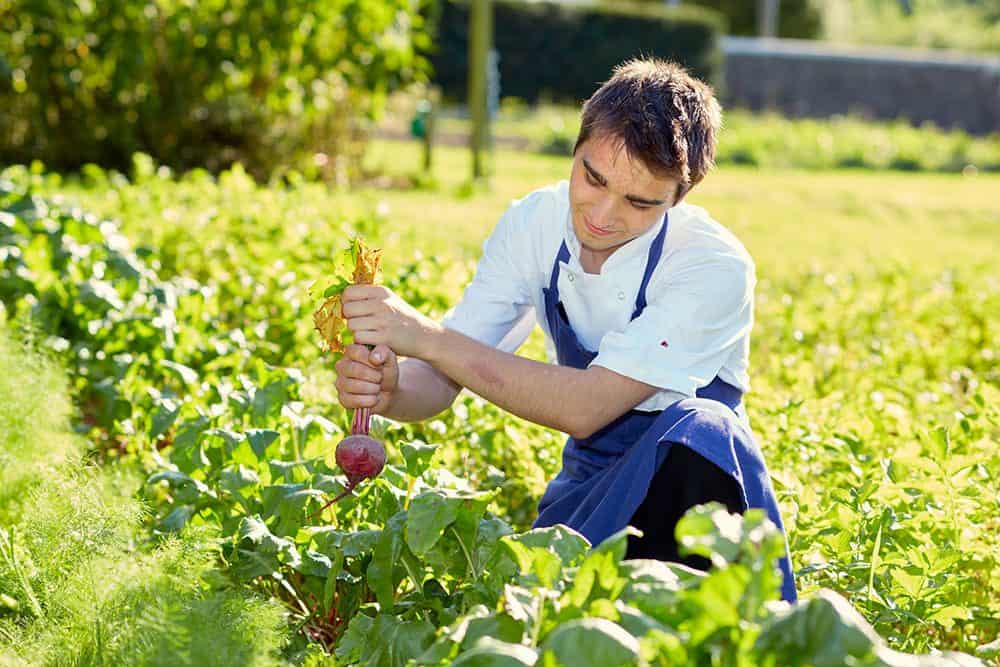
Douglas Balish, Executive Chef at Grove of Narberth, Pembrokeshire
“Vegetables will take centre stage as sustainability and plant-based foods become more prevalent.”
Chef’s Forecast: “The biggest trend I’ve noticed is simplicity in the food and a more relaxed service. Fine dining is still there, but it’s far less stuffy than before and is more accessible and relatable for most people. This trend was already on its way, but since Covid it’s accelerated. More and more people are looking for good food, but in a relaxing atmosphere. This goes hand-in-hand with the food offering, and there is more focus on the ingredients than on having a crazy technique and ten different garnishes.
“For ingredients, I think, broadly speaking, that vegetables that have been grown well and cooked using a variety of methods are the next thing. As sustainability and plant-based food become more prevalent, I can see this becoming a main focal point for a lot of restaurants. Our menu focus is on sustainable produce, with attention paid to the ingredients. Having our own kitchen garden and growing our own seasonal vegetables is so important to the delivery, and allows our guests to enjoy produce from earth to plate within hours.”
An overnight stay at Grove of Narberth costs around £350 per night.
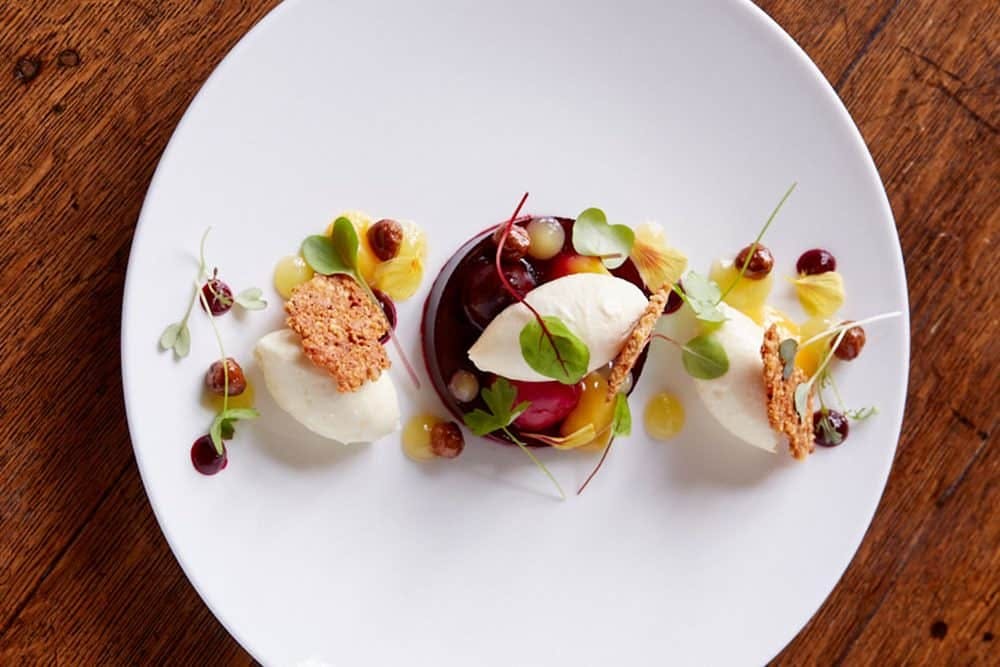
George Blogg, Executive Chef at Gravetye Manor, West Sussex
“Eating with the planet in mind and embracing a positive impact Climatarian diet.”
Chef’s Forecast: “Speaking about Climatarian diets, I think it’s a really positive move and luckily most PoB Hotels’ fine dining restaurants are already operating menus that are climatarian. Buying seasonally and locally means lower carbon emissions. The use of game is especially important, as no clearing or deforestation is required to grow this meat, and eating it ensures that the animal populations are managed and that the balance of biodiversity on an estate like Gravetye is supported. This means it’s even better than low impact – it is positive impact”.
An overnight stay at Gravetye Manor costs around £385 per night.
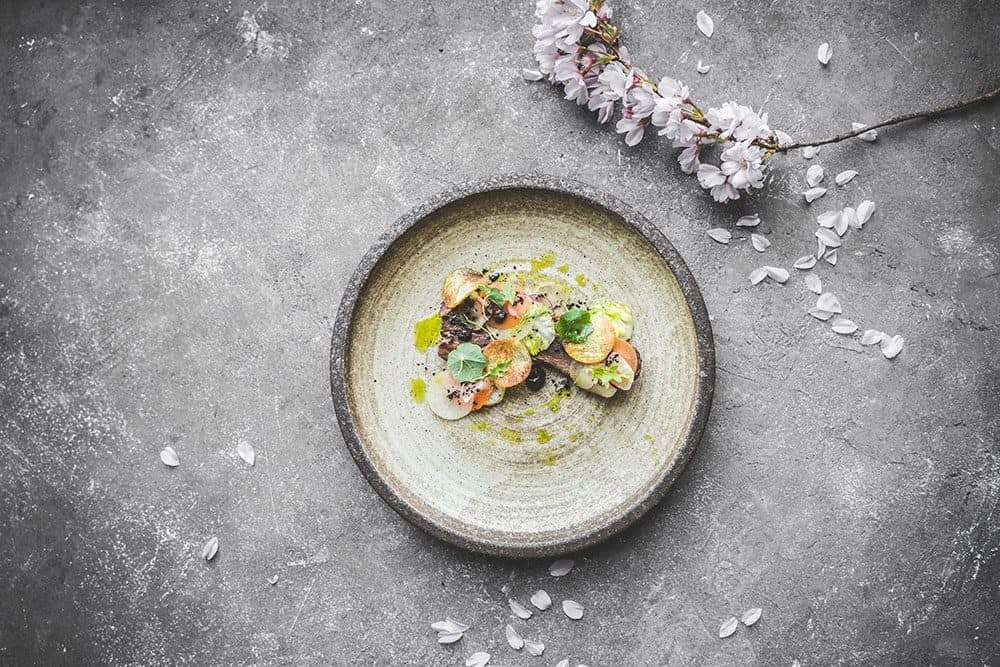
Damian Broom, Executive Chef at Seaham Hall, County Durham
“Farm-to-fork dining will be more important as we look to eat more sustainably and to reduce waste.”
Chef’s Forecast: “Guests are now keen to understand where their meal has been sourced from and how many food miles have been racked up. We work with regional suppliers who rear just a small number of animals and grow vegetables using the most welfare-friendly farming techniques. All seasonal produce, where practical, is sourced within 30 miles of the hotel, and fish orders are placed daily, based on what comes in on the boats. I work closely with regional farmers to ensure that organic, sustainable farming solutions are in place. I introduced retired dairy cows to the menu as a clear example of this practice.
“Our kitchen team is continuously seeking new ways to improve through reduction of waste, and to find more sustainable methods of working. This includes plans to install our very own kitchen garden, greenhouse, chicken coop, beehives and crayfish pond.”
An overnight stay at Seaham Hall costs around £295 per night.
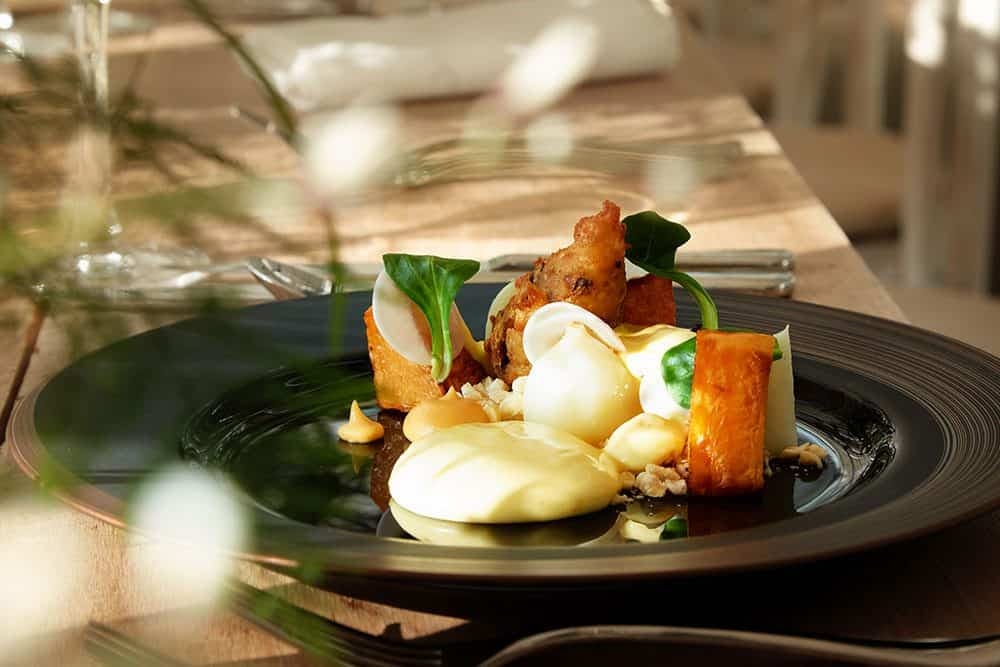
Joe Gould, Executive Chef at Glenapp Castle, Ayrshire, Scotland
“Plant-based diets and flexitarian eating are now staple eating habits for the nation.”
Chef’s Forecast: “Although less meat consumption has been on most diners’ minds for the past few years, the increase in plant-based diets and flexitarian eating can hardly be described as a ‘trend’ anymore. These are now staple eating habits for the nation and aren’t going anywhere any time soon. Here at Glenapp Castle we’re adapting to guests’ evolving eating habits with the launch of a new restaurant this spring, The Azalea Glasshouse & Bothy Restaurant. The walled garden surrounding the glasshouse restaurant will be close to full bloom around May, providing the kitchen with high-quality fresh produce, literally from our doorstep.
“I have also noticed more Middle Eastern food and influences entering the fine dining scene. Levantine food dovetails well with the increasing interest in health food. The food from the Middle East also lends itself to social eating dynamics, with small plates and lots of variety – something we are all leaning towards more when dining out. Neil Hawthorn, our new Glasshouse Head Chef, has put together an exceptional menu combining Scotland’s greatest produce and influences from his extensive experience with chefs who have trained around the world. His Dukkah nuts on salt-baked swede dish is a perfect example, marrying Scotland’s finest with up-to-the-minute world food trends.”
An overnight stay at Glenapp Castle costs around £295 per night.
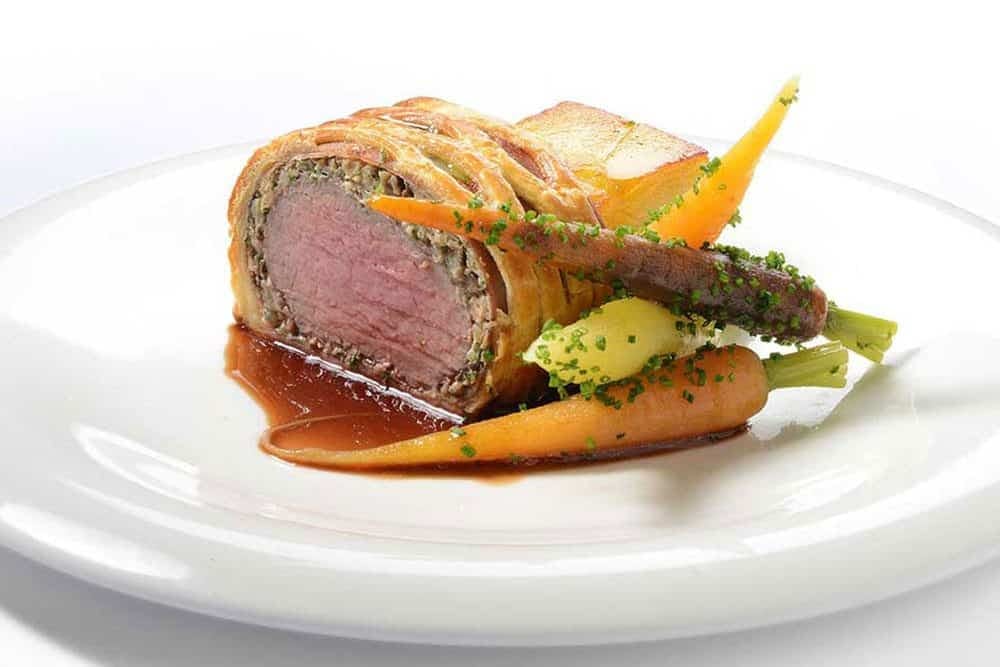
Lisa Goodwin Allen, Executive Chef at Northcote, Lancashire
“Making the most of the Lancashire larder on our doorstep enables seasonal, locally sourced ingredients to shine.”
Chef’s Forecast: “The idea of serving seasonal, locally-sourced cuisine may not be new, but this year it will be embraced more than ever and will become the norm as climate change moves up the agenda. Drawing inspiration from the local landscape, maximising the kitchen garden throughout the seasons and strong relationships with a network of local biodynamic and organic suppliers will ensure that seasonality is a focus throughout the whole year and not just in the warmer spring and summer months. With out of season food, we have to work much harder to pull the flavours out, whereas with seasonal produce, the ingredients speak for themselves, so it’s a win-win situation for us and for the environment. The finest ingredients, whether that’s local Ribble Valley beef, chalk stream trout, quail or asparagus, will take centre stage. Alongside this, we are now definitely in a time of dining being more relaxed, both in terms of the atmosphere and service.
“Our annual food festival, Obsession, which sees some of the UK’s most famous chefs take over the kitchen at Northcote, is a good barometer for what’s to come. This year, two thirds of the chefs who took part in the January event featured scallops in their dishes.”
An overnight stay at Northcote costs around £245 per night.
Related Content
More Stories
British Travel
2025 Luxury Travel Trends: What’s Shaping Britain’s Getaways?
19 December 2024
Discover the 2025 luxury travel trends shaping Britain's high-end getaways, from sustainable escapes to wellness retreats.
Behind the Door
From New Faces to Old Friends: Curating a Magical Escape at Seaham Hall with Porter, Kevin Jackson
16 December 2024
Feeling like you need to switch off? Porter, Kevin Jackson explains how guests can leave all their troubles behind with a magical escape at Seaham Hall.
Flavour & Savour
Cheers to the Season: The Best Christmas Cocktail Recipes to Enjoy this Year
4 December 2024
We’ve rounded up the most luxurious Christmas cocktail recipes from Britain's finest hotels, to truly elevate your festive entertaining.







